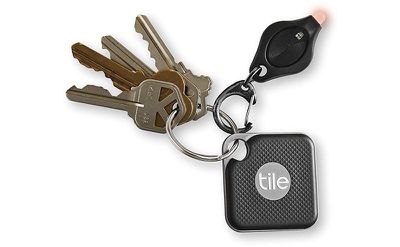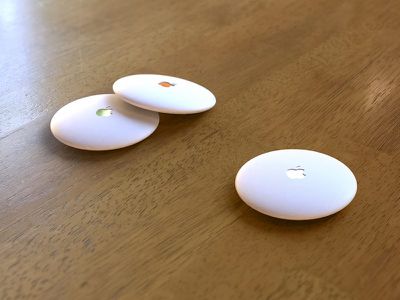Executives from PopSockets, Sonos, Basecamp, and Tile are attending a congressional hearing today to testify in an ongoing antitrust inquiry involving major tech companies like Amazon, Apple, Google, and Facebook, reports The Washington Post.
The smaller companies are aiming to provide evidence that the tech giants have become too big and have practices in place that stifle competition and hurt sales. Tile in particular is gunning for Apple, claiming that Apple's iOS 13 Bluetooth and location tracking devices have hurt its business, and that Find My resembles Tile's own service.

Apple made sweeping changes in iOS 13, rolling out the Find My app alongside privacy-oriented changes that make it harder for third-party app developers to track customers without their knowledge.
According to Tile, Find My, which is designed to let users locate lost iOS and Mac devices, has a major advantage over competing products because location tracking for Find My is enabled by default, while Tile must obtain user permission for location access in "deep, hard-to-find smartphone settings" that also has to be reauthorized with regular follow-up reminders.
Some lawmakers see Apple's changes as an effort to gain an edge over rival companies, but Apple says the iOS 13 updates are designed to improve user privacy and prevent app developers from using customer data without permission. "Apple has not built a business model around knowing a customer's location or the location of their device," Apple spokesperson Fred Sainz told The Washington Post.
Tile attorney Kirsten Daru said that Tile is "looking to Congress to level the playing field" because Apple's changes have caused a "confusing and frustrating experience for [Tile] users."
Sonos, PopSockets, and Basecamp are sharing similar complaints about Google, Facebook, and Amazon, and the information provided to lawmakers today has the potential to shape future state and federal probes.
Tile could soon be even more upset with Apple, as rumors suggest Apple is working on an "Apple Tags" product that can be attached to small items like wallets or keys to track them using the Find My app on the iPhone.

Apple Tags will directly compete with Tile's own trackers, and will be better integrated into the iOS operating system. Apple will also be able to offer more advanced tracking features, taking advantage of the ultra-wideband chip in the iPhone and the Find My option that uses connected Apple products belonging to other people to locate devices even when they're offline.
For those interested, there is a live stream of the congressional hearing that can be watched on YouTube, with the video embedded above.
Update: CNBC's Kif Leswing has shared Apple's full statement on the House Antitrust Subcommittee hearing involving Tile, which clarifies that Apple is working on an option that will let third-party developers enable "Always Allow" tracking at the time of setup. Apple plans to introduce this setting in a future software update.
Apple builds its hardware, software, and system level apps to protect user privacy and provide the best products and ecosystem in the world. Apple has not built a business model around knowing a customer's location or the location of their device.
When setting up a new device users can choose to turn on Location Services to help find a lost or misplaced device with Find My iPhone, an app that users have come to rely on since 2010. Customers have control over their location data, including the location of their device. If a user doesn't want to enable these features, there's a clear, easy to understand setting where they can choose exactly which location services they want enabled or disabled.
In regard to third-party apps, we created the App Store with two goals in mind: that it be a safe and trusted place for customers to discover and download apps, and a great business opportunity for developers. We continually work with developers and take their feedback on how to help protect user privacy while also providing the tools developers need to make the best app experiences.
We're currently working with developers interested in enabling the "Always Allow" functionality to enable that feature at the time of setup in a future software update.























